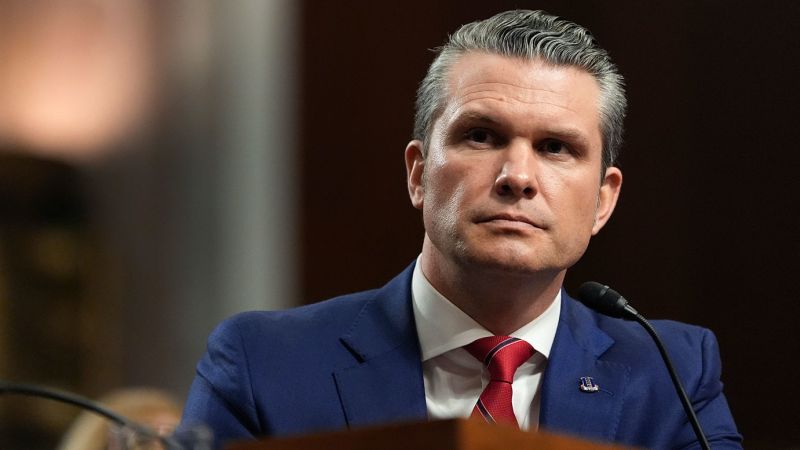
Top Senate Armed Services members briefed second time on Hegseth FBI background check after ex-wife gave statement
CNN
Pete Hegseth’s ex-wife recently gave a new statement to the FBI about the defense nominee’s alcohol use, according to two sources familiar with the matter, an issue that has become a source of controversy during his confirmation process.
Pete Hegseth’s ex-wife recently gave a new statement to the FBI about the defense nominee’s alcohol use, according to two sources familiar with the matter, an issue that has become a source of controversy during his confirmation process. Senate Armed Services Chairman Roger Wicker and the ranking Democratic member Jack Reed were briefed on Samantha Hegseth’s statement, which has not been previously reported, on January 16, two days after the committee held Pete Hegseth’s confirmation hearing, the sources said. Wicker and Reed were initially briefed about the FBI’s background check before the confirmation hearing, according to another source familiar with the matter. Since then, the FBI has interviewed Samantha Hegseth and has included her statement in its supplemental review. Democrats pressed Hegseth during his confirmation hearing about allegations of both sexual misconduct and excessive drinking. Hegseth has repeatedly denied all allegations of misconduct, including having a drinking problem, but has said he would not drink while serving as secretary of defense if he’s confirmed. In the briefing, Wicker and Reed were told the FBI connected with Samantha Hegseth and that she gave a statement in which she discussed concerns about Pete Hegseth’s drinking. One source familiar with the statement said Samantha Hegseth told the FBI, “He drinks more often than he doesn’t.” The source familiar noted that Samantha and Pete Hegseth have been divorced since 2017. “There’s nothing new here and we look forward to the confirmation vote,” Tim Parlatore, Pete Hegseth’s lawyer, told CNN.

The Trump administration has moved with lightning speed to roll out the president’s immigration agenda, effectively closing off the US southern border to asylum seekers, severely limiting who’s eligible to enter the United States and laying the groundwork to swiftly deport migrants already in the country.

















